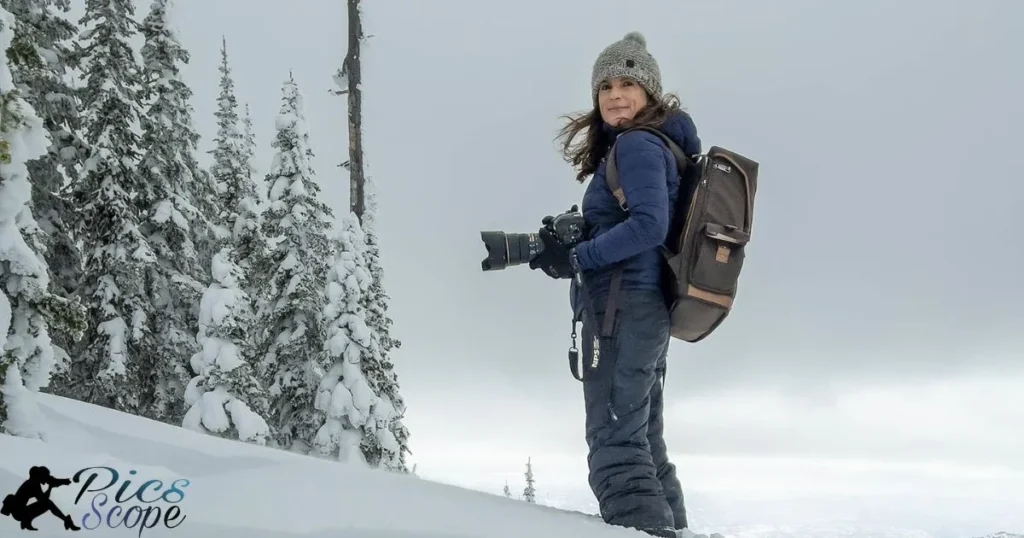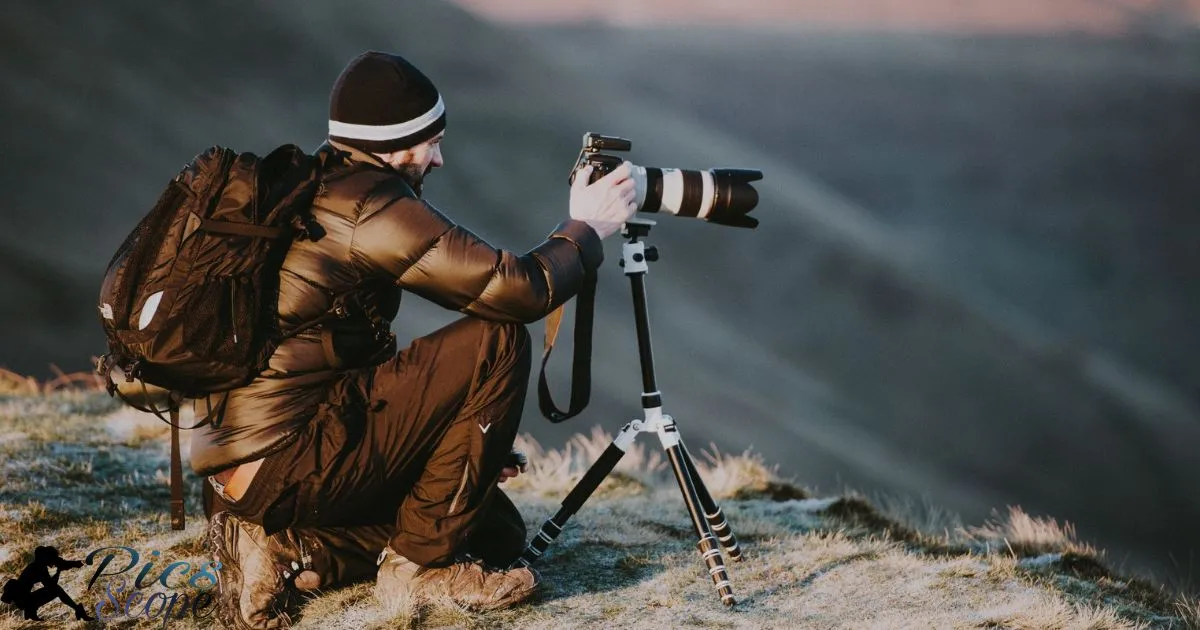Photography to me is capturing special moments. It is freezing time by taking pictures. Photography allows me to look back and remember happy times.
“What does photography mean to you?” To me, photography is a way to express myself. When I take photos, I am able to show what I see in the world through my unique perspective. Photography gives me an opportunity to be creative.
Photography has become an important hobby in my life. I enjoy photographing nature scenes like sunsets and landscapes. Family photos are also meaningful to me. Photography allows me to document and reminisce about memories with loved ones. It provides a way for me to share pieces of my life with others through sharing pictures.
How Photography Captures Memories
Photography helps capture memories that might otherwise fade over time. Taking photos at events like family vacations or birthday parties lets you look back and reminisce about the happy moments you shared. Photos provide a visual reminder of experiences that can bring back those memories vividly years later.
Photos also help you remember little details you might otherwise forget. Things like the outfit you wore on a special occasion or the layout of a place you visited long ago. Those small specifics captured in an image can ignite fuller recollections of past events when you revisit old photographs.
Moments Does Photography Help You Remember
Photography preserves memories of milestones in people’s lives like graduations, weddings, births of children and other life events. Looking through old photos years later helps bring back the feelings of joy and accomplishment from achieving important goals and celebrating with loved ones.
Photos also help maintain memories of casual moments spent with family and friends. Fun times together making silly faces for the camera or snapped candid photos preserve meaningful everyday interactions that might fade from memory. Revisiting those photos sparks fond recollections of comforting time spent with important people in your life.
Photos Help You Reminisce About The Past
Reviewing old photographs allows you to reminisce about trips taken and good times spent with other people. Flipping through photos gradually recalls details about vacations, outings and celebrations that were photographed.
Photos also help transport you back mentally to places you visited and setting you experienced in the past. Whether natural landscapes, cityscapes or interior settings, images capture a visual record that can cognitively return you to those locations when revisiting photos they provide the ability compare how you and places have changed over time.
Ways Do Photos Preserve History
Photography documents histories large and small. Photos in history books, newspapers and museums create visual archives of significant past events that might otherwise be forgotten. For personal history, I Love Photography photos preserve family histories through generations by capturing faces and details uniting relatives across decades.
Photos also maintain records of changing times and evolving cultures. Comparative photos document how fashion, technology, architecture and infrastructure have progressed through the years. These visual records preserve social history for future generations to learn about previous eras. Whether of public events or private moments, photos secure history that might have otherwise disappeared from memory or record.
Photography Act As A Time Capsule For Your Life
Yes, photography serves as a type of time capsule, capturing and preserving moments from different periods of your life. Looking back through photos from your childhood, school years, careers and adulthood provides a visual narrative of your personal experiences and growth through the years.
This time capsule quality allows you to share glimpses into eras of your past with others who may find it interesting to see photos placing you in various life stages. It also lets you reflect on how much you and your circumstances have changed over long stretches of time encapsulated within the photos. This personal photographic archive acts as a unique non-verbal autobiography of sorts.
What is photography about, really?
Photography is about capturing moments in time, freezing memories, and telling stories through images. It allows us to express ourselves creatively, conveying emotions, perspectives, and ideas without words. Whether it’s landscapes, portraits, or still life, photography enables us to see the world in new ways, noticing details we might otherwise overlook.
Through photography, we explore the beauty of the world around us and document the human experience. It’s a powerful tool for communication, sharing experiences, and preserving memories for generations to come. Ultimately, photography is about connecting with others, sparking emotions, and offering glimpses into different cultures, moments, and realities.
What Does Photography Express?

Photography allows visual expression of an artist’s unique technical skills, perspectives and interests. A photographer’s body of work often expresses consistent themes they find personally meaningful or aesthetically appealing.
Distinctive styles also emerge, as some photographers favor candid shots while others arrange carefully constructed scenes. Moody, bright or abstract qualities to images further particular artistic styles. Through developing their personal visual language, photographers express their creative talents and inner worlds to engage audiences.
Your Photography Style Say About You
The type of content and technique someone uses to take photos reveals aspects of their character and priorities. Artistic photographers pursuing sophisticated composition and lighting may see themselves as more meticulous. Candid street photographers likely enjoy spontaneity more than rigidly planned shots.
Preferences for landscape, portrait or macro photography might indicate the viewer’s appreciation for nature, people or subtle details. So in many ways, the habits, subjects and processing choices made with the camera become a reflection of common personality traits, interests and approaches to life. A photography portfolio offers clues into the eye and spirit behind the lens.
Photography Convey Feelings Or Emotions
Even without models, photography has the power to evoke sentiments. Moods are set by color palettes, subject matter and use of light or shadow. Joyful topics like children playing take on warm, light-hearted tones while lonelier winter scenes cultivate melancholy.
Iconic photos like a solitary person silhouetted against a vast landscape inspire feelings of smallness versus the gigantic world. Macro close-ups of wet dewdrops make the viewer feel miniature observing intricate natural phenomena. These examples show how visual storytelling through photographic composition can provoke universal human feelings and reflections in
Types Of Photos Do You Find The Most Meaningful
For many, photos capturing meaningful life events and quality time shared with loved ones hold the most significance. Wedding and family photos preserve priceless memories of bonding with important people.
Portraits and group shots remind us of relationships that give life purpose. Landscape photos from treasured vacations transport us back to feelings of peace, beauty and gratitude for natural wonders.
Photos can also carry profound personal meaning for subjective reasons. Someone may find high sentimental value in a simple snapshot reminding of a deceased family member or location from their childhood.
Overall, the photos people treasure most meaning seem to be those sparking powerful nostalgia and reminding of life’s deepest joys, connections, gratitudes and where they come from.
Photography Allow You To Share Your Perspective
Certainly, photography inherently involves creative choices reflecting an individual’s point of view. Whether consciously or not, photographers shape what audiences see based on personal interests and aesthetic sensibilities.
Certain photographers use their medium as an outlet for social or political commentary. By choosing subject matter and techniques that emphasize particular narratives, photography becomes a means of visual storytelling communicating unique perspectives.
Photographs also literally show how photographers see the world through a very specific, personal lens. In this way, every image captures and shares a glimpse into another human’s way of observing and interpreting their experiences.
Does Photography Fuel Your Creativity?

For many, embracing photography as a creative outlet energizes and expands their imagination. Having a camera opens up possibilities for finding art in everyday scenes and experiences. Attempting ambitious compositional ideas or unique shooting techniques leads to self-expression.
Engaging with photography also cultivates flexible thinking. Photographers test alternatives like various perspectives, exposures or post-processing. This fluid approach helps stimulate creativity applicable to other domains as well. Overall, creative photography feeds imagination and innovative problem-solving in a visually stimulating way.
Ways Does Photography Spark Your Imagination
Photography prompts imagining new angles, lighting scenarios, or subjects with aesthetic potential. It inspires envisioning abstract concepts or narratives captured through symbolic imagery. Getting acquainted with photography’s vast possibilities prevents visual boredom, sparking fresh perspectives on familiar surroundings.
Documenting unique themes over time through photo projects also fuels imagination. Pursuing personal interests strengthens creativity and shows new connections between topics. Regular photography encourages flexible thinking applying logic and artistry to envisioning each compositional scenario.
Exploring Photography Techniques Influence Your Work
Experiencing diverse techniques expands artistic options. Learning tools like selective focus amplifies expressiveness. Trying unlikely equipment opens up new styles. Mastering basics gives freedom to experiment boldly.
Recognizing techniques’ power motivates testing boundaries. One may learn contrasting black and white conversion reveals depth in ordinary scenes. Understanding lighting widens composing choices encompassing mood. Each method explored enhances creativity’s breadth and photography’s potential for visual storytelling.
Your Photographic Process Look Like
For some, photography follows a systematic process. Planning sessions around set themes facilitates focus. Pre-visualizing setups increases control. Others prefer spontaneity, following inspiration without preconceptions.
Some review shots immediately, while others defer judgment. Editing culls weak photos. Some share social media frequently, others hoard shots for retrospectives. Overall processes vary, but all nurture an eye for moments with impactful expressions.
Has Photography Impacted Your Problem-Solving Skills
Pushing outside comfort zones with photography strengthens resilience. Troubleshooting technical glitches builds patience and resourcefulness. Conceptual obstacles spark out-of-box solutions.
Balancing artistic visions within constraints parallels real-world dilemma-solving. Willingness to rework projects mirrors an ability to revise approaches adapting to new information. These skills transfer to challenges outside photography in meaningful ways. A methodical yet malleable photographer taps flexible thinking.
What Inspires Your Photographic Vision?
Diverse muses spark photographic souls. Nature energizes some seeking its beauty; cities inspire abstract perspectives. Events like concerts open horizons. Travel exposes the fascinating unfamiliar.
Biographies introduce influential masters. Study illuminates new techniques; practice strengthens skills. Daily life presents artistic possibilities; curiosity fuels exploration. Throughout, a photographer cultivates individual sensibilities guiding compositions. Their vision emerges through inspired, dedicated learning.
Photography Subjects Or Genres Interest You Most
5 short tips for photography subjects or genres that may interest you most
- People – Capturing portraits, candid shots, and lifestyle photos of people allows you to practice expression and interaction. Friends and family make great subjects.
- Nature – Scenic landscapes, plant macros, and wildlife offer almost limitless material. Nature photography gets you outside enjoying diverse visual textures.
- Architecture – Manmade structures exhibit intricate patterns and symmetry appealing to some photographers. Urban or rural settings both provide architectural opportunities.
- Events – Concerts, festivals, sports provide spontaneous action and energy. Documenting events can introduce you to photojournalism techniques.
- Still Life – Arranging everyday or creative objects on tabletops exercises your composition skills. Macro still life zooms in on intricate textures and patterns up close.
Photographers Have Influenced Your Own Photography
Great artists invariably influence successors. Some photographers admire pioneers like Alfred Stieglitz for black and white expressionism. Cartier-Bresson inspires candid street shots. Annie Leibovitz’ portraiture moves others. Contemporary masters also impact careers, introducing new techniques.
Immersing in archives fuels technical understanding and aesthetic sensibilities. Photographers likewise find inspiration closer to home, from skilled family or peers. Ultimately, individuals synthesize influences into an authentic personal style through dedicated practice. Mentors merely guide distinctive talents already inherent.
You Find Inspiration When Shooting Photos
Inspiration emerges from introspection as much as observation. Reflecting on personal interests sparks motivated photos. Noting beauty in everyday mundanity awakens perspectives. Meditating on feelings like nostalgia facilitates symbolic expression.
Nature continues providing muses for tranquil landscapes. Cultural insights stimulate conceptual projects. Spending time with loved ones offers portrait inspiration. Ultimately, photographers tune into internal and external worlds noticing inspiration everywhere with an open, questioning mind.
You Develop Your Photography Projects
Long-term projects evolve intentionally over months or years. Photographers first narrow vast topics into concise concepts. Research exposes neglected angles and underrepresented voices.
Sketching plans facilitates organized, ethical shooting securing needed permissions. Test sessions ensure technical/compositional feasibility. Notebooks catalog progress, reflections and future directions. Projects crystalize through dedication, flexible planning and passion for chosen themes.
How Has Photography Changed You?

Pursuing photography broadens horizons. It nurtures observation skills seeing formerly ignored intricate beauty. Noting light transforming scenes enhances lifelong visual literacy.
Documenting milestones through a creative lens shifts usual perspectives. Sharing creations connects communities with common interests. Exhibiting provides pride and worldly understanding. Overall, photography cultivates appreciation, flexible thinking, expression and balances art with relationships in positive ways.
Has Taking Photos Changed Your Way Of Observing The World
Through photography, the world appears richer, more intricate. Its practice hones an eye for fleeting moments appreciated anew, like a bird in flight. Observing with an intent to capture enhances awareness of life’s subtle wonders.
It sparks playfulness towards habitual routines, finding narratives within. Exercising this observational muscle transfers beyond photography, likewise enhancing other artistic talents and general engagement with experiences. One sees life as more photogenic and emotionally impactful.
Ways Has Photography Impacted Your Mindset
Embracing photography cultivates optimism, open-mindedness and gratitude. Its practice promotes patience, as mastery requires years. Photographers embrace imperfection and experiment fearlessly, open to outcome unknowns.
Curiosity extends beyond technical how-tos towards understanding diverse cultures and perspectives. Travel photography especially encourages empathy, appreciating humanity’s shared beauty worldwide. Overall, photography nurtures flexibility, positivity and broad appreciation for life in transformative ways.
New Skills Have You Learned From Photography
| New Skill | Description |
| Technical skills | Learning about camera functions, ISO, aperture, shutter speed, lenses, lighting, etc. allows you to properly capture scenes. |
| Composition | Understanding techniques like rule of thirds, leading lines, and framing helps create visually pleasing shots. |
| Creativity | Photography encourages creative thinking to find new angles and ways to represent subjects visually. |
| Problem-solving | Troubleshooting technical issues or conceptual challenges builds resilience and out of the box solutions. |
| Patience | Mastering skills and getting the right shot requires perseverance through trial and error. |
| Mindfulness | Photography teaches attentive observation of details to find the perfect moment. |
| Collaboration | Working with models requires strong communication and interpersonal skills. |
| Business skills | Selling photos necessitates marketing, contracts, licensing, and other business practices. |
| Editing | Culling dozens of images down to a high-quality selection improves critical eye. |
| Storytelling | Conveying narratives through images trains visual storytelling abilities. |
Has Photography Enriched Your Life Overall
Sharing photography connects individuals worldwide through common interests. Exhibiting creations promotes pride in blossoming talents. Travel photography expands cultural understanding. Archiving memories creates rich personal histories.
Pursuing photography as a career or hobby provides mental stimulation reducing stress. It yields relaxation through meditative landscape sessions. Photography cultivates appreciation for visual arts and an eye for beauty in mundane scenes. Overall, the practice magnificently enriches lives both artistically and holistically.
Frequently Asked Question
Creative Outlet
Photography provides a stimulating channel for self-expression and exploring new perspectives.
Memories
Being able to look back through photos taken at different life stages and with loved ones creates a rich visual history.
Appreciation For Beauty
Engaging with photography nurtures an eye for noticing intricate wonders in everyday scenes that might otherwise be overlooked.
Connection
Sharing photos is a way of bonding with others who can understand a unique perspective or experience visualized in an image.
Relaxation
Some find the meditative process of zoning into a photoshoot and nature scenes relaxing and an escape from stresses of modern life.
Conclusion
Photography provides profound meaning on numerous personal levels. It sparks creativity through new perspectives and technical skills. Photography also cultivates important life skills like problem-solving ability and mindfulness. Most importantly, the practice enriches lives by preserving memories to reminisce over, documenting beauty observed each day and connecting communities worldwide through shared interests.
For many, photography has become far more than just a hobby – it is a passion that adds depth, fulfillment and mindfulness to everyday experiences. By enhancing observation abilities and sparking creativity, photography presents an avenue for lifelong learning and self-expression.







